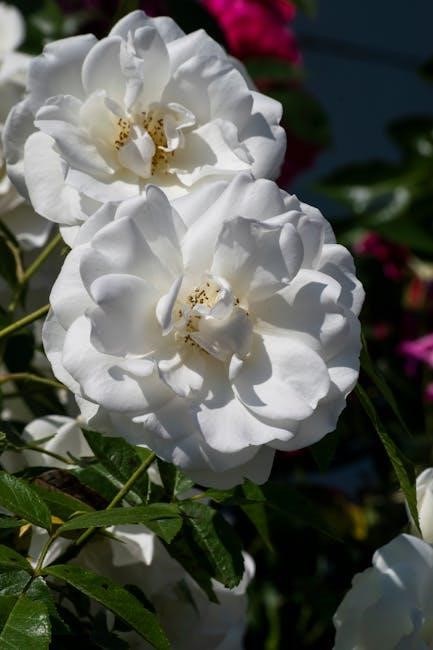Coffee Melchizedek emerges as a cultural phenomenon, blending ancient traditions with modern rituals, creating a unique paradigm shift in coffee consumption and consciousness, reflecting deeper symbolic meanings.
The Cultural Phenomenon of Coffee Melchizedek
Coffee Melchizedek has transcended mere beverage consumption, evolving into a cultural phenomenon that intertwines tradition, spirituality, and modernity. Its rise reflects a societal shift toward mindful consumption, where coffee is no longer just a commodity but a symbol of connection and ritual. Enthusiasts embrace meticulous preparation processes, transforming everyday routines into sacred acts. The movement’s allure lies in its blend of historical and biblical symbolism, drawing parallels to the enigmatic figure of Melchizedek, who embodies priesthood and kingship. This cultural wave resonates deeply, fostering a sense of community among its followers and redefining coffee’s role in contemporary life.
The Ritualization of Coffee Consumption
The ritualization of Coffee Melchizedek transforms a simple act into a profound experience. Enthusiasts engage in meticulous preparation, elevating coffee from a daily grind to a sacred ceremony. Each step, from selecting beans to brewing, is deliberate, fostering mindfulness. This process mirrors ancient rituals, symbolizing a connection to Melchizedek’s priestly role. The cultural shift toward conscious consumption is reflected here, as coffee becomes a symbol of intentional living. These rituals create a sense of community and shared meaning, making Coffee Melchizedek more than just a drink—it’s a way to connect with heritage and spirituality. The careful preparation and symbolic elements foster a deeper appreciation, turning every sip into a meaningful act.

The Historical and Biblical Context
Melchizedek, the enigmatic King of Salem and priest of El Elyon, first appears in Genesis 14, blessing Abraham. His dual role as king and priest, unusual in biblical times, has led to profound theological interpretations and symbolism across religious texts, influencing various traditions and cultural practices, including the emergence of Coffee Melchizedek as a modern ritual with deep historical roots.
Melchizedek: The Enigmatic Figure in Biblical Texts
Melchizedek, the King of Salem and priest of El Elyon, appears abruptly in Genesis 14, blessing Abraham and disappearing just as mysteriously. His dual role as king and priest, uncommon in biblical contexts, has sparked theological intrigue. Despite his brief mention, Melchizedek’s significance endures, with Hebrews 7 elevating him to a timeless, priesthood figure. His lack of lineage in Scripture has led to speculation, with some linking him to a pre-incarnate Christ or a celestial being. This enigmatic figure remains a subject of fascination, symbolizing divine authority and spiritual continuity, leaving scholars and believers alike to ponder his true nature and purpose in the biblical narrative.
The Evolution of Melchizedek’s Role in Religious Thought
Melchizedek’s role has evolved significantly across religious texts and traditions. In the Hebrew Bible, he is portrayed as a king-priest figure, while the New Testament, particularly in Hebrews 7, elevates him to a divine priesthood without genealogy, symbolizing eternal authority. In apocryphal literature, his character expands, exploring his origins and destiny. Modern interpretations often link him to Christ-like figures or celestial beings, reinforcing his mystical significance. This evolution reflects shifting theological perspectives, adapting Melchizedek’s image to serve various doctrinal purposes. His enigmatic nature has allowed him to transcend traditional roles, becoming a symbol of divine order and timeless spirituality in religious thought;

Coffee Melchizedek: A Paradigm Shift in Consumption
Coffee Melchizedek represents a profound cultural shift, transforming coffee from a commodity to a cult object. It reflects a movement toward mindful, ritualistic consumption, reshaping consumer consciousness and elevating coffee to a symbolic experience.
From Commodity to Cult Object: The Rise of Coffee Melchizedek
The rise of Coffee Melchizedek marks a transformative shift in how coffee is perceived and consumed. Once viewed as a simple commodity, coffee has evolved into a cult object, symbolizing a deeper cultural and spiritual connection. This phenomenon reflects a broader societal movement toward mindful and ritualistic consumption, where every sip carries symbolic meaning. The meticulous preparation process and the communal rituals surrounding Coffee Melchizedek have elevated it beyond mere refreshment, creating a sense of belonging among enthusiasts. This transition underscores a growing desire for authenticity and meaning in daily life, turning coffee into a sacred experience that transcends its practical origins.
The Movement’s Impact on Consumer Consciousness
The Coffee Melchizedek movement has profoundly influenced consumer consciousness, reshaping perceptions of coffee from a mundane commodity to a meaningful ritual. By emphasizing intentional preparation and symbolic gestures, it encourages mindfulness and appreciation for the process, rather than just the product. This shift reflects a broader cultural desire for authenticity and connection, as consumers seek experiences that align with their values. The movement challenges the fast-paced, disposable nature of modern life, fostering a slower, more reflective approach to daily routines. As a result, Coffee Melchizedek has become a catalyst for rethinking consumption patterns, inspiring a more thoughtful and ethical approach to everyday choices.

The Rituals and Practices
Coffee Melchizedek involves meticulous preparation and symbolic gestures, blending ancient traditions with modern practices to create a unique, transformative experience that elevates coffee consumption to an art form.
The Meticulous Preparation Process
The preparation of Coffee Melchizedek is a deliberate and intricate ritual, emphasizing precision and intention. Each step, from selecting rare beans to grinding and brewing, is performed with mindfulness. The process often involves traditional methods, such as manual grinding and pour-over techniques, which are believed to preserve the coffee’s essence and spiritual significance. Enthusiasts argue that this meticulous approach not only enhances the flavor but also deepens the connection to the beverage’s historical and symbolic roots. The preparation is seen as a meditative act, transforming a simple cup of coffee into a profound sensory and spiritual experience that resonates with the enigmatic legacy of Melchizedek.
The Symbolism Behind Coffee Melchizedek Rituals
The rituals surrounding Coffee Melchizedek are rich in symbolism, drawing parallels to the biblical figure of Melchizedek, a king and priest who embodies unity and divine connection. The coffee beans are seen as sacred offerings, representing purity and gratitude. Each step of the preparation process symbolizes a spiritual journey, from the grounding of beans, signifying humility, to the pouring of water, emblematic of life and renewal. The act of sharing coffee among participants mirrors Melchizedek’s role as a unifier, fostering community and harmony. The rituals are not just about consumption but about creating a sacred space for reflection, connection, and spiritual growth, aligning with the deeper, mystical aspects of Melchizedek’s legacy.

The Community and Culture
Coffee Melchizedek fosters a thriving global community, uniting enthusiasts who embrace its mindful ethos, shared rituals, and conscious lifestyle, reshaping cultural norms and fostering deeper connections.
The Growing Community of Coffee Melchizedek Enthusiasts
The Coffee Melchizedek movement has cultivated a vibrant, global community of enthusiasts who share a passion for mindful consumption and ritualistic preparation. These individuals, spanning diverse backgrounds, are united by a deep appreciation for the symbolic and cultural significance of coffee. Through social media, local meetups, and specialized events, the community continues to expand, fostering connections and exchanging knowledge. Enthusiasts often view Coffee Melchizedek as more than a beverage—it represents a lifestyle that aligns with conscious living and spiritual reflection. This growing network not only celebrates the uniqueness of Coffee Melchizedek but also inspires others to embrace its transformative potential.
- A global network of like-minded individuals.
- Shared values of mindfulness and cultural appreciation.
- A platform for exchange and inspiration.

The Role of Coffee Melchizedek in Modern Lifestyle
Coffee Melchizedek has become a cornerstone of modern lifestyle, transcending mere consumption to embody a conscious, ritualistic experience. It aligns with today’s emphasis on mindfulness, sustainability, and meaningful routines; Enthusiasts integrate it into their daily lives as a moment of pause, reflection, and connection, often sharing these experiences with like-minded individuals. The movement also resonates with the growing desire for authenticity and depth in a fast-paced world. By elevating coffee to a symbolic and communal act, Coffee Melchizedek fosters a sense of belonging and purpose, making it a defining element of contemporary culture and identity.
- A symbol of mindful living and sustainability.
- A ritualistic experience beyond ordinary coffee consumption.
- A catalyst for community and cultural connection.

Unmasking the Trend
Coffee Melchizedek is more than a fad; it’s a paradigm shift, blending ritualistic experiences with cultural significance, revealing deeper symbolic meanings and inspiring a movement that reshapes consumer consciousness.

Exploring the Hidden Secrets of Coffee Melchizedek
Coffee Melchizedek unveils a fascinating blend of tradition and modernity, offering insights into its enigmatic origins and symbolic connections. Rooted in biblical narratives, it draws parallels to Melchizedek, a figure shrouded in mystery, emphasizing spiritual and cultural depth. The movement highlights meticulous preparation rituals, elevating coffee from a commodity to a cult object. Enthusiasts embrace it as a meditative practice, fostering community and conscious consumption. Its rise reflects a broader shift toward meaningful experiences, making Coffee Melchizedek a phenomenon that transcends ordinary coffee, embedding itself in lifestyle and identity. By unmasking its secrets, we uncover a story of tradition, innovation, and the enduring quest for connection in a fast-paced world.
The Future of Coffee Melchizedek: Trends and Predictions
The future of Coffee Melchizedek is poised for growth, with trends pointing toward increased sustainability and technological integration in its preparation rituals. As consumer consciousness evolves, the movement may expand globally, attracting diverse enthusiasts. Predictions suggest a rise in health-conscious blends and ethical sourcing practices, aligning with its symbolic connection to ancient traditions. Digital platforms and social media will likely play a pivotal role in spreading its influence, fostering a stronger sense of community. With its unique blend of spirituality and modernity, Coffee Melchizedek is expected to remain a cultural phenomenon, inspiring new generations to embrace its rituals and values, solidifying its place in the global coffee culture landscape.

Leave a Reply
You must be logged in to post a comment.